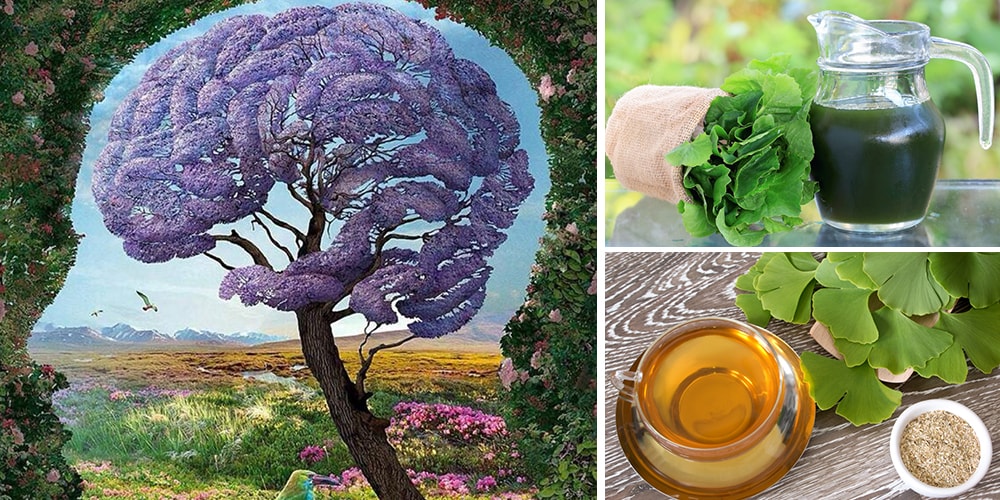
Fight Brain Fog with These Herbs
You can feel it once in a while: the unusual lag of information and trouble processing details. Your agility in remembering things is cloudy one day and clear the next. You may also feel so distracted that it takes you a long time to finish a simple task correctly. It can be a scary thing, thinking you are heading into age-related cases of brain aging like dementia.
What Is Brain Fog?
Brain fog, or mental fog, is a situation characterized by a lack of focus, mental clarity, and hampered memory. Many people experience brain fog but it does not always due to an illness or a serious condition. It is simply a term used to describe the loss of ability to think properly and getting easily distracted.

Brain fog comes from causes such as:
- Radiation from devices and gadgets
- Stress
- Lack of sleep
- Side effects of certain medications
- Environmental factors (pollution, toxins, chemicals, etc.)
- Vitamin and mineral deficiencies
- Neurodegenerative and autoimmune diseases
In elderly people, brain fog is often mistaken as the onset of cognitive disorders like dementia or Alzheimer’s. However, unlike these degenerative diseases, brain fog does not manifest any other worrying symptoms like complete memory loss. It is simply the slower processing speed and bouts of forgetfulness due to aging brain cells.
Herbal Remedies for Brain Fog
Did you know that hydration can also affect how your mind functions? When you are slightly dehydrated, it tends to slow down brain processes. So, it is important to keep yourself frequently hydrated to prevent mental fog from happening.
Lifestyle changes can also do so much in improving your memory. Get enough restorative sleep, eat a balanced diet, exercise regularly and engage in brain training games and activities.
To give your brain a better advantage against aging, you can also rely on herbs with promising benefits on neurological functioning.
Lemon Balm
Lemon balm (Melissa officinalis) is a calming herb that treats mild cases of stress and anxiety. It has a nervine property which soothes the nervous system and improves its performance. Lemon balm is used for brain disorders like Alzheimer’s disease, insanity and depression. It also makes a potent herb for preventing brain fog.
Lemon balm is a perennial herb you can use as food garnish or prepared as tea or infusion. To clear brain fog, anxiety and insomnia, take 4 to 6 pieces of dried lemon balm leaves. Boil it in a cup of water and steep for 10 minutes. Drink it twice a day, especially before bedtime to re-wire your brain and free your body from stress and tension.
Ginseng
There are two types of ginseng that are effective against brain fog: American ginseng (Panax quinquefolius) and Korean ginseng (Panax ginseng). Both herbs have an adaptogenic property that gives the body a normalizing and balancing effect. They have the same active compounds as well. However, American ginseng is more of a cooling herb and Korean ginseng has an invigorating, warming effect.
An infusion of ginseng root boiled in water and steeped for 15 minutes helps in managing brain fog. To alleviate its bitter taste, you can add honey to it according to your preference. During cold weather, Korean ginseng is the best one to take. Get the brain-promoting properties from the cooling American ginseng during hot weather.
Please note that these herbs have very potent effects and may interfere with medications and boost their effect. If you are taking medicines for depression, high blood pressure and other conditions, talk to your healthcare provider before taking ginseng.
Ashwagandha
Withania somnifera or Ashwagandha is a memory enhancer herb that enhances the functions of the brain’s neurotransmitters. Consuming ashwagandha can repair damaged brain cells and slow down aging. It also improves blood circulation by regulating cerebral blood flow. Despite changes in blood pressure, a well-regulated blood flow ensures adequate oxygen and nutrient supply in the brain. Thus, it keeps the brain active and well-focused at all times.
As an adaptogen, ashwagandha is the best herb for nervous conditions like chronic stress and anxiety that may cause brain fog.
A decoction of ashwagandha leaves or roots is good for stress and slow memory. Or you can powder its roots, take 5 grams of it and mix it in a tsp of honey. Take it once a day to improve cognitive and logical alertness or treat sleeplessness.
Ginkgo
Ginkgo Biloba is a perennial tree whose leaf extract is a popular herbal supplement for various illnesses. Its major benefit is in supporting normal brain health and promoting mental alertness. Ginkgo is considered a natural memory enhancer and is used in treating the early stages of dementia. By increasing the blood flow in the brain, ginkgo prevents dendrite connection loss and increases the brain’s efficiency.
If you want to protect your brain from toxins and oxidative damage, take ginkgo herbal capsules twice a day. You can also boil ginkgo leaves in a cup of water and drink 1 oz of it once a day to prevent brain fog.
Bacopa
Bacopa (Bacopa monnieri) is a tropical plant well-valued in Ayurvedic medicine for brain health. It is a curative herb that helps improve mental acuity and cognition. Bacopa acts as a sedative, but it does not dull the mind similar to prescription medicines like barbiturates. If you want to enhance your learning skills, increase memory retention and treat brain aging, Bacopa is an effective plant for it.
Bacopa is sold as a powder, capsule supplement or extract. You can take the supplement according to the indicated dosage but for no more than two weeks. Preparing fresh juice from powdered leaves and stems is effective in enhancing memory and concentration. Just take 5 grams of the Bacopa powder mixed in a glass of water or fresh juice twice a day.
Indian Pennywort
Indian pennywort (Centella asiatica), also known as Gotu Kola, is also a popular nerve tonic valued similarly to Bacopa. But while Bacopa is curative, Indian pennywort is preventive. It foils premature decline of neurological activities by nourishing the nerves, improving blood circulation and removing harmful toxins that cause early aging. Indian pennywort is purported as a potential cure-all herb with its wide range of therapeutic functions.
To improve memory and concentration, simply chew a few Indian pennywort leaves daily. You may also try this Gotu Kola drink recipe:
Dry a few Indian pennywort leaves and grind them into powder. Add some crushed almonds and a pinch of black pepper to improve its absorption. Grind and mix them well. Take one tsp of the mixture and add it to a glass of water or fresh juice and take it once a day.
Medicinal Mushrooms
Some mushrooms may help prevent mental fog. Lion’s mane, Cordyceps, and Reishi are three of the most vital nootropic mushrooms known for supporting brain health. They have preventative actions that combat neurodegeneration. They are often used as supplements against dementia and Alzheimer’s disease.
Medicinal mushrooms are bioactive, which means you can get their healing benefits simply by eating them. You can also take them as herbal supplements to better manage their doses. But when foraging wild mushrooms, make sure that it is identified as an edible species and a therapeutic one.
If you are struggling with poor cognitive function, this Brain Bundle can help as it contains several brain-boosting botanicals, including: Lemon Balm, Lion’s Mane, Cordyceps, and Reishi.
Holy Basil
Tulsi (Ocimum sanctum) or Holy basil is considered a sacred herb that Ayurvedic medicine valued as “The Unparalleled One.” It is an adaptogen that brings homeostasis within the body and reduces stress by balancing the cortisol level. Basil is calming and is effective against neuropsychiatric disorders. It is specifically useful in treating brain fog and personality disorders.
Holy basil acts as a protector against physical stress, environmental stress and toxins from pollutants. It rejuvenates the brain to boost its memory and concentration power.
Holy basil is available in essential oil and used in diffusers for aromatherapy. You can also buy it in capsule form if you don’t like the taste of fresh basil. The medicinal benefits of tulsi can also be enjoyed at home by preparing its infusion. Take five holy basil leaves, chop them coarsely and boil them in a cup of water. Let it sit for five minutes and remove the leaves. Enjoy it with honey or stevia.
Goji Berry
Goji berry (Lycium barbarum) is a superfruit associated with vitality, longevity and greater health. Significant findings show goji berries can increase energy level, athletic performance, quality of sleep, ability to focus and mental acuity, among others.
Goji berry has effective adaptogenic, anti-aging, blood tonic and neuroprotective properties. Eating goji berries can improve cloudy brains and brain-related degeneration.
You will usually find goji berries in juice form or as dried fruit similar to raisins. They are also added to superfood trail mixes. The berries are effective in any form.
To make goji berry tea: Boil 2 tsp dried goji berry fruits in 1 ½ cups water. Simmer for 15 minutes and remove from heat. Steep for 40 minutes and drink one cup three times a day for brain fog.
Turmeric
Turmeric (Curcuma longa) is the herb that you generally need for almost all health problems. It possesses a wide therapeutic effect and is touted as the most powerful herb for idiopathic illnesses. Turmeric contains curcumin, a compound that manages many diseases and health conditions.
If your brain fog is due to stress or a result of other underlying health conditions, turmeric is a go-to herb to try. By managing stress and reducing symptoms of sicknesses, turmeric eventually helps clear the mind and improve its focus.
The best way of taking turmeric is by adding a tsp of its ground form in a glass of plant-based milk with a pinch of black pepper. Add honey to taste and drink it once a day, best before bedtime to facilitate better sleep.
Takeaway
Brain fog can happen to anyone regardless of age, but it is more chronic in elderly people. Our present lifestyle and exposure to radiation and pollution are culprits in disrupting brain functions. Changing our lifestyle to a healthier perspective is a simple step in supporting our physiological functions and slowing down aging.
Neuroprotective and supportive herbs are also there to help us fight common neurological issues. Many of these herbs are effective in re-wiring the brain to boost its functions. But, remember that these herbs are not without side effects. They are so potent and can interact with medications and worsen certain conditions.

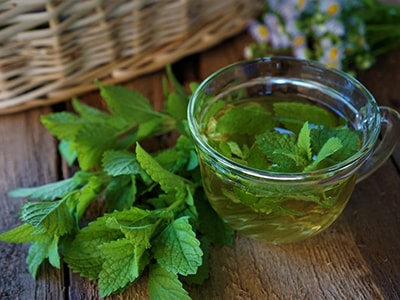
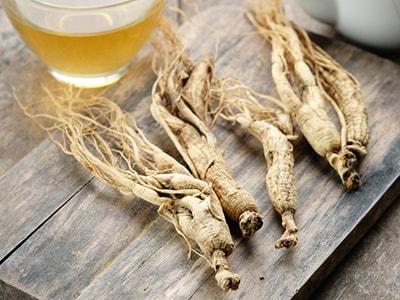
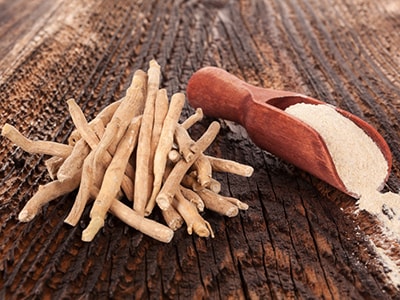
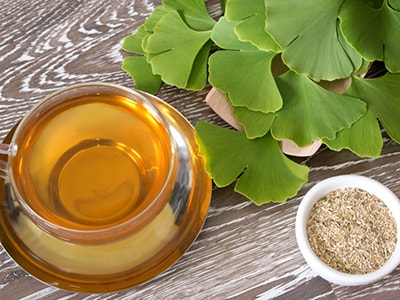
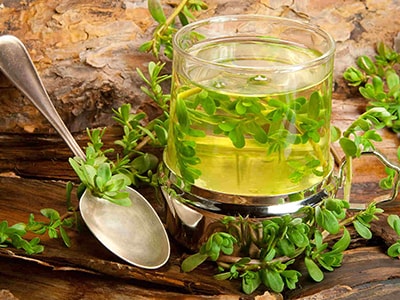
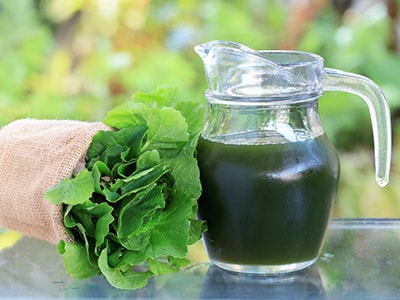
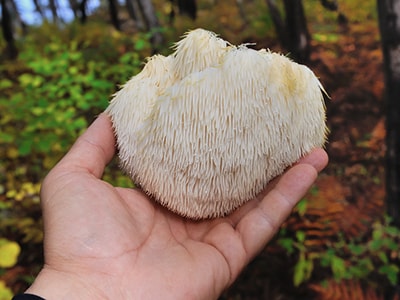
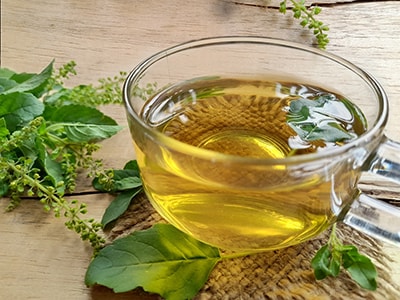
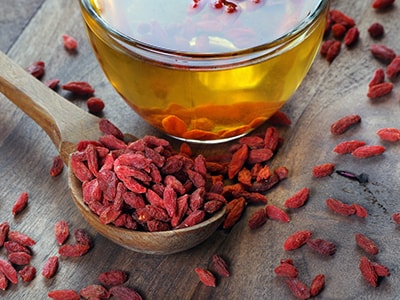
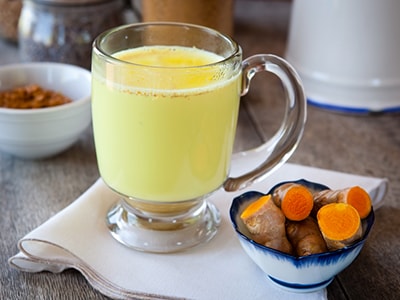
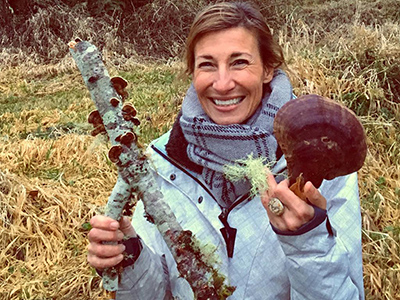
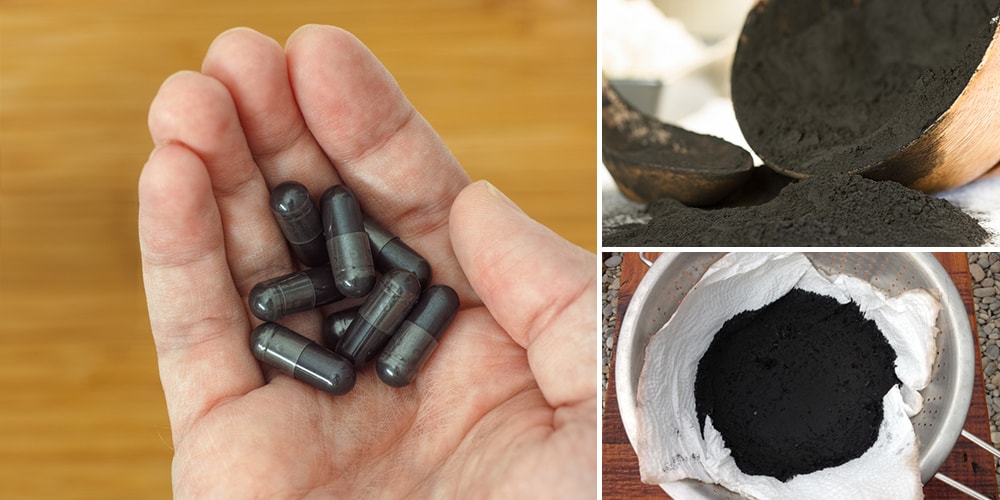
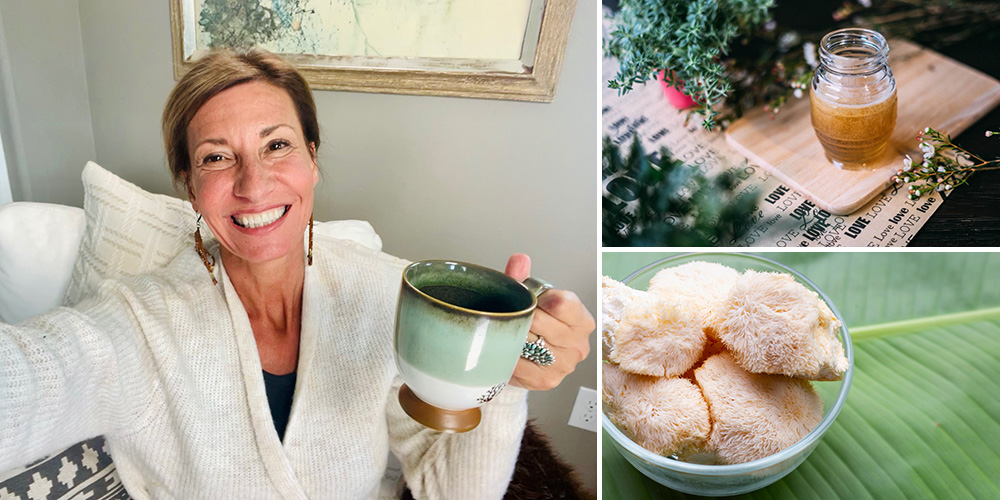
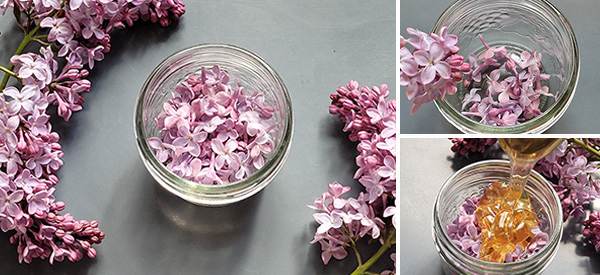
That is totally awesome me and my wife is going to have to try that that sounds like a good remedy
Articles like this will hurt profits in the rigged medical establishment…… My in laws ate these things in their lunch salad mostly every day and both just passed at 97 and 96, stayed active till the end in their gardens and homes….. Many times they told their M D’s to pound sand and stop padding the bill with endless appt’s and tests…..
Do you recommend using a bunch of these together? Or you should you pick out specific herbs for your symptoms ? Thank you
Some will work better than others. Combining some will work but some of this tastes really bad and combining them might make them, taste even worse. Also certain herbs will work better for some people and not as well for others. If you are normally cold and damp taking herbs that are cooling and moistening will make you worse. If you are normally hot and dry taking warming and drying herbs will make things worse. Do some research on the different herbs and you will see. I go onto Mt Rose herbs web site and put the herbs into the search bar and then read about the herb and what it does and the properties of the herb.
Thank you very much ! I will study extensively about each one before using 👍
Hi Sherry,
These herbs are very potent so they should be used with care, paying attention to any side effects that might appear. It is best not to mix herbs without research, or discuss with a naturopathic doctor first.
Also, it is best to start with small doses and increase the dosage in time, as needed.
Many blessings and good health!
Thank you for your response! I will be very careful what I try! My memory loss is getting so bad I just really want to try what I can to help it!
Which mushroom gets a person out of a wheelchair?
That is Nicole Apelian. She was on the show alone and lived in the bush for 55 days after she was diagnosed with MS. She has a book out “The lost Book of Herbal Rmedies.
I believe it was reishi that Nicole used.
Is there a place to buy these herbs to grow in our gardens?
Hi Diane,
Many of the plants mentioned are wild plants, but some can be grown in other locations with correct care. You can find seeds, herbs, supplements and extracts in most health food stores or online herbal shops. It is best to search on Google for one that is close to you or delivers to your area.
If you’re interested in growing medicinal plants you could also check out our Medicinal Garden Kit: https://medicinalseedkit.com/kit/
Many blessings and good health!
My name is Sam Bwaya. I am privileged to join this conversation from Kampala, Uganda. In rural Africa our grandfathers used medicinal plants to treat almost every medical condition. Unfortunately, this information was not systematically passed down to young generations and a lot of it is not documented. I took interest in herbal plants and I am amazed at what I am discovering. We have invaluable herbal plants in our compounds, gardens and all over uncultivated land. The pressure on land is increasing and as long as we do not associate any value to these plants, we regard them as weeds that need to be dug out. I have started a botanical garden of sorts and out of the named 10 herbal plants for fighting brain fog I have 4; Withania Somnifera which is called Bijjinjibitya locally, Indian Pennywort or Gotu Kola, locally known as Embutamu (this is the most popular and believed to be the most potent herbal brain booster), turmeric – which is mostly only used as a spice for cooking and whose medicinal value is hardly recognised much, and finally the lemon balm. Ocimum sanctum- Holy Basil, is mentioned but I believe that I have Ocimum gratissimum – African Basil, commonly known as Mujjaja in Uganda and while they mmay belong to the same family, they could be different. I have a conservation area of just over 70 acres on which I am trying to preserve medical plants. Each time I get visitors I get to learn about plants I have been passing by without knowing their medicinal value. I hope that I will come across people that are keenly interested in research on the many, many plants that are in this conservation area and to document them.
Hi Sam,
This is a great initiative and we thank you for spreading the word about the power of medicinal plants.
Many blessings and good health!